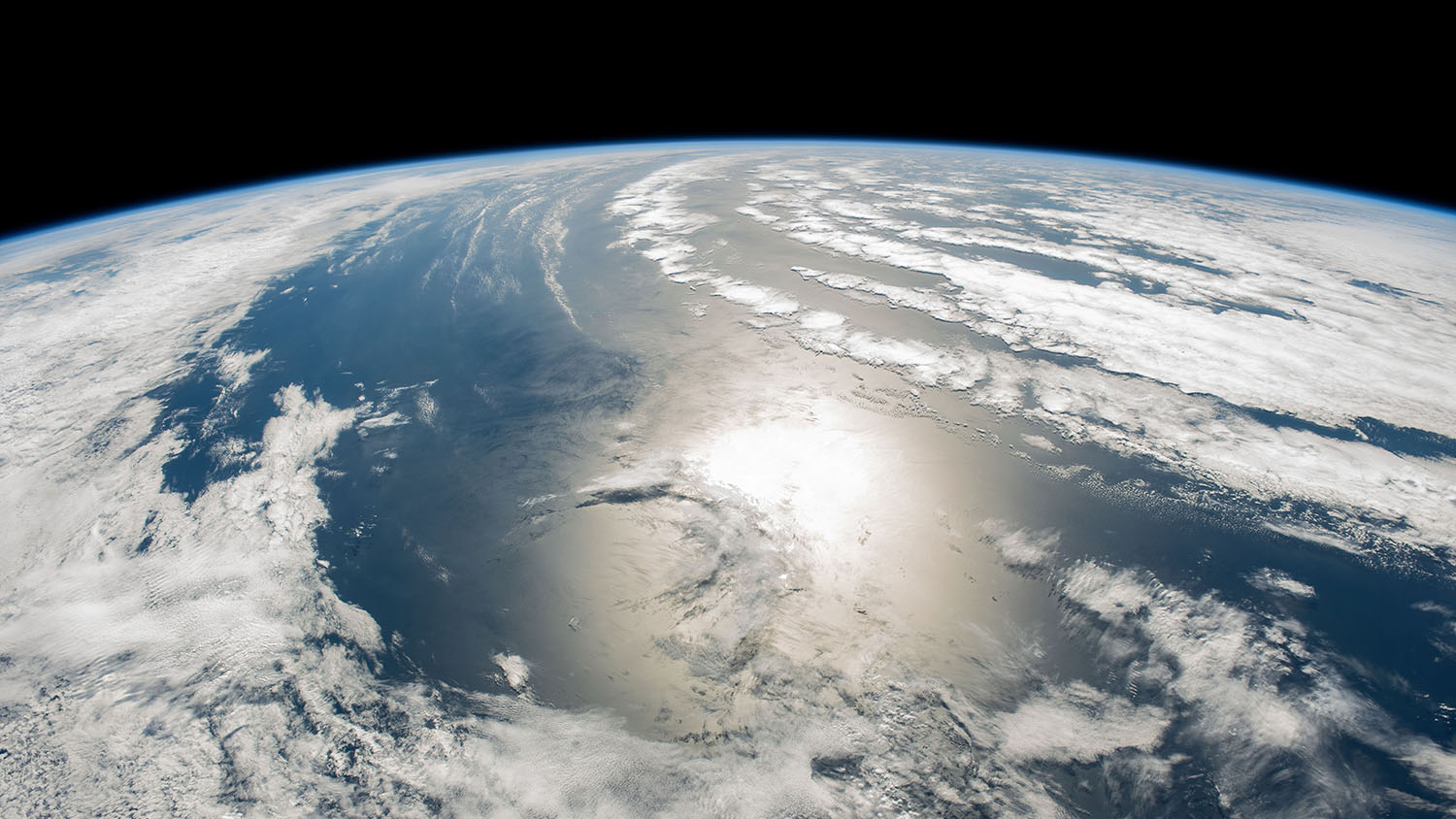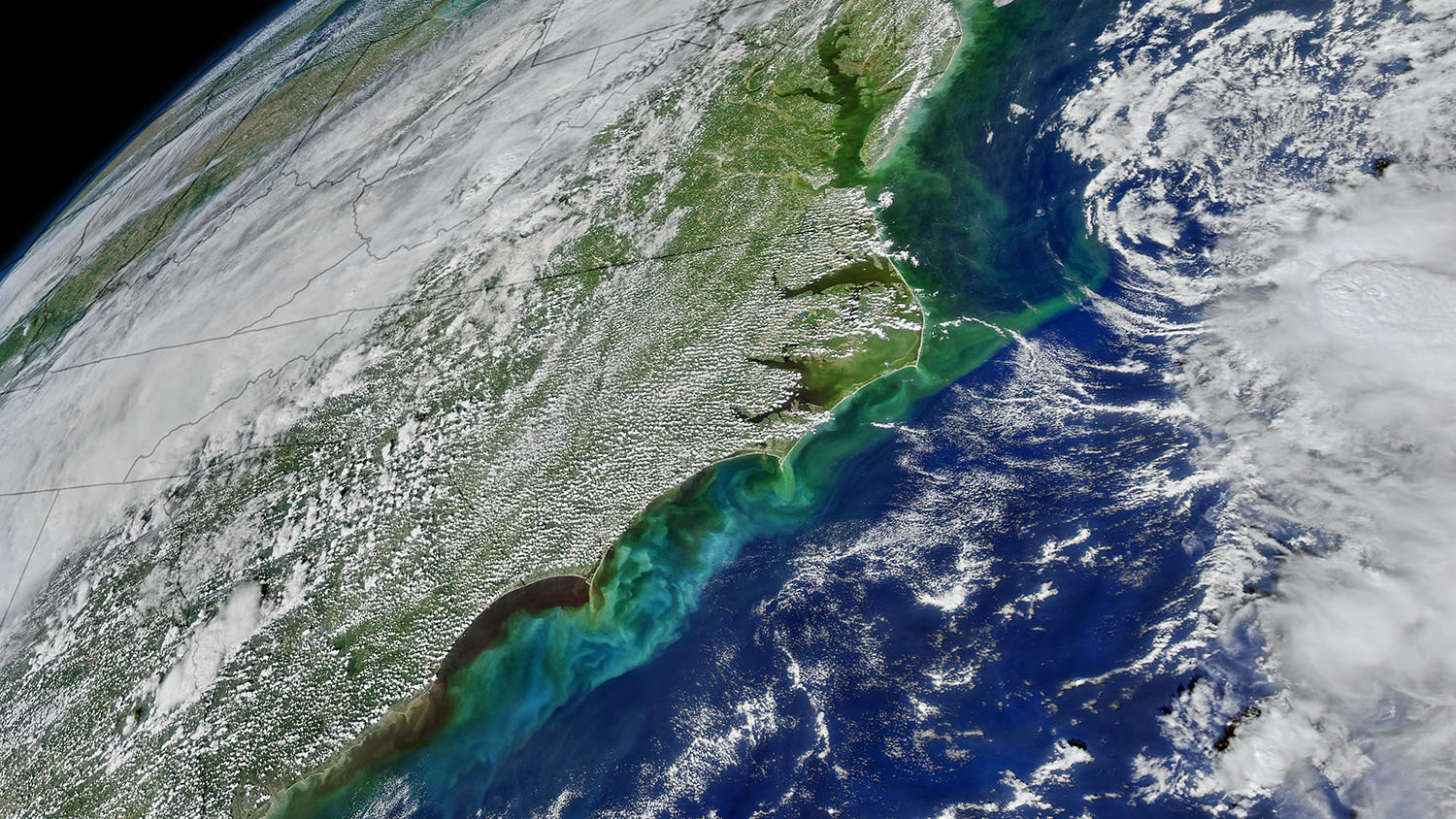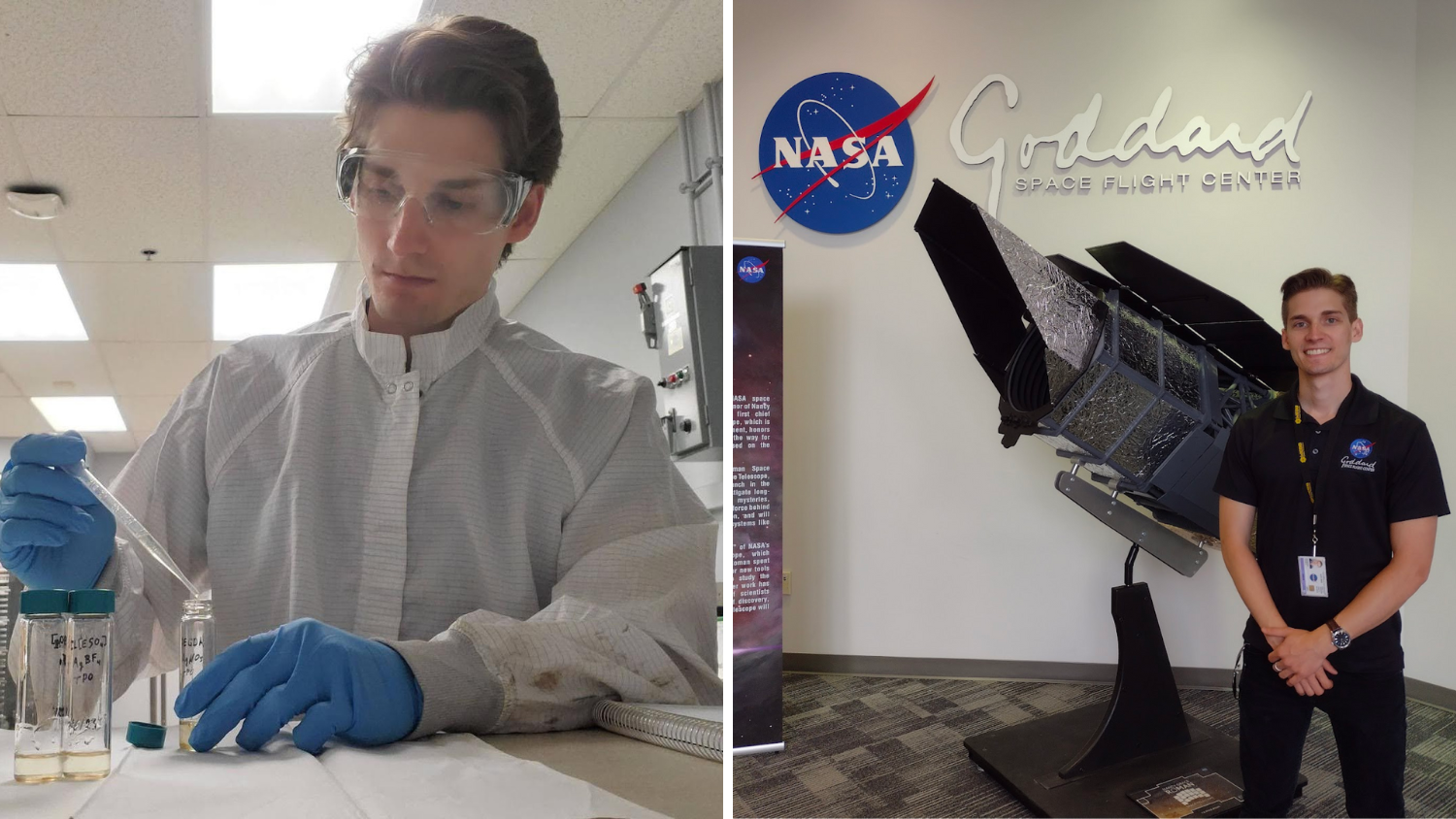Exploring Earth from Space: North Carolina Space Symposium Emphasizes Importance of Open Science and Student Research
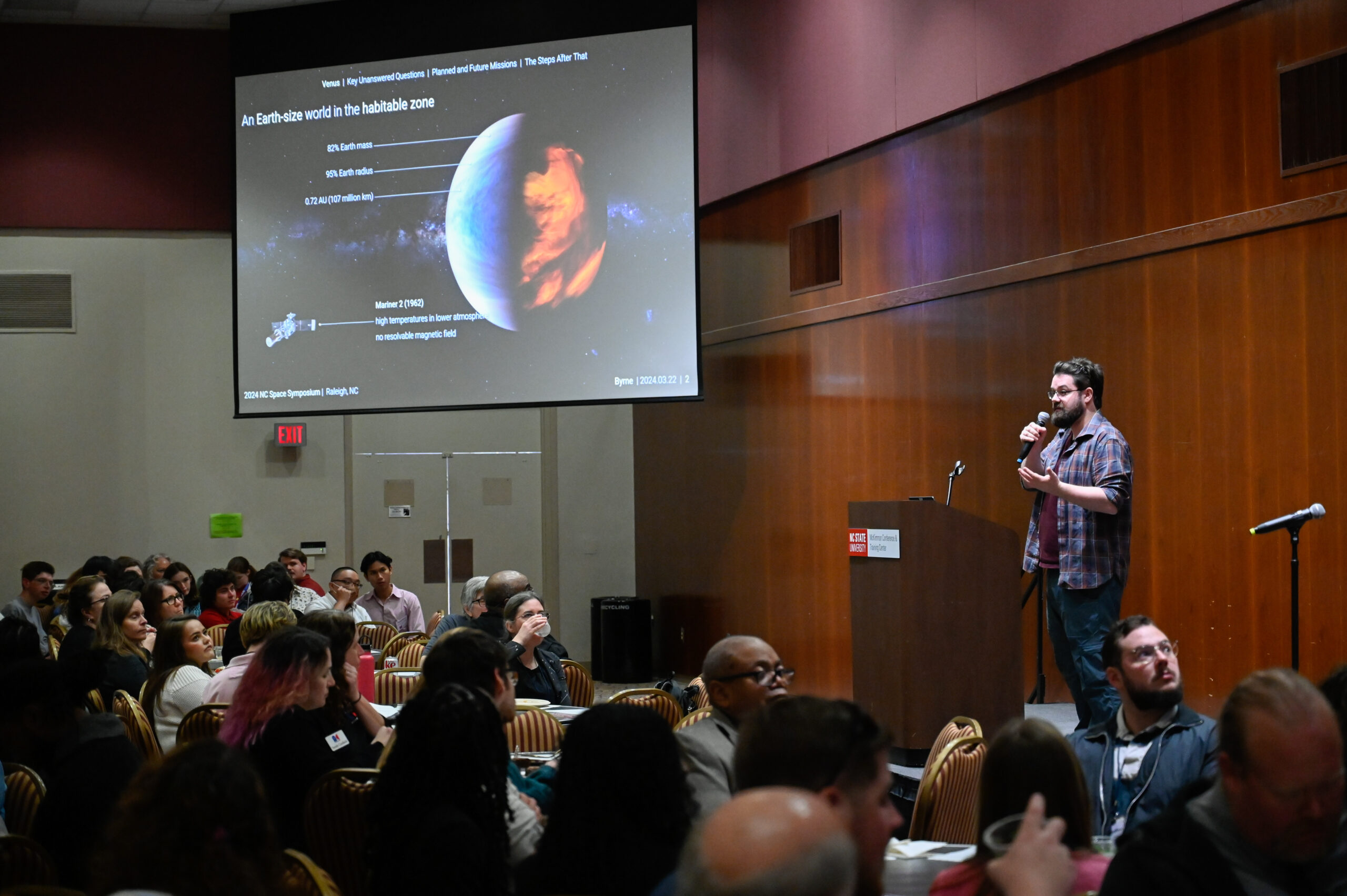
On March 22, North Carolina Space Grant hosted its annual NC Space Symposium at the McKimmon Center in Raleigh. Highlighting open science and exploring Earth from space, the signature event brought together over 200 attendees, with 75 percent being students, from across the state and beyond to learn from one another and celebrate student research.
“The Symposium offers a great opportunity for researchers here in NC and from our NASA expert partners to share about the latest in STEM,” said Susan White, director of NC Space Grant.
Celebrating Student Research
The event underscored student research and engagement. Students’ work was represented in 57 poster presentations, 8 lightning talks, and 7 team displays. Among the poster sessions and lightning talks, a diverse range of topics were covered, including the use of cognitive aids for space flight, a wellness vending machine, and telescope networks.
“Presenting my poster was an amazing experience,” said Michael Berryann, a master’s student at NC Central University studying Earth, environmental, and geospatial sciences. “Getting to share my knowledge on the research conducted gave me a sense of accomplishment.”
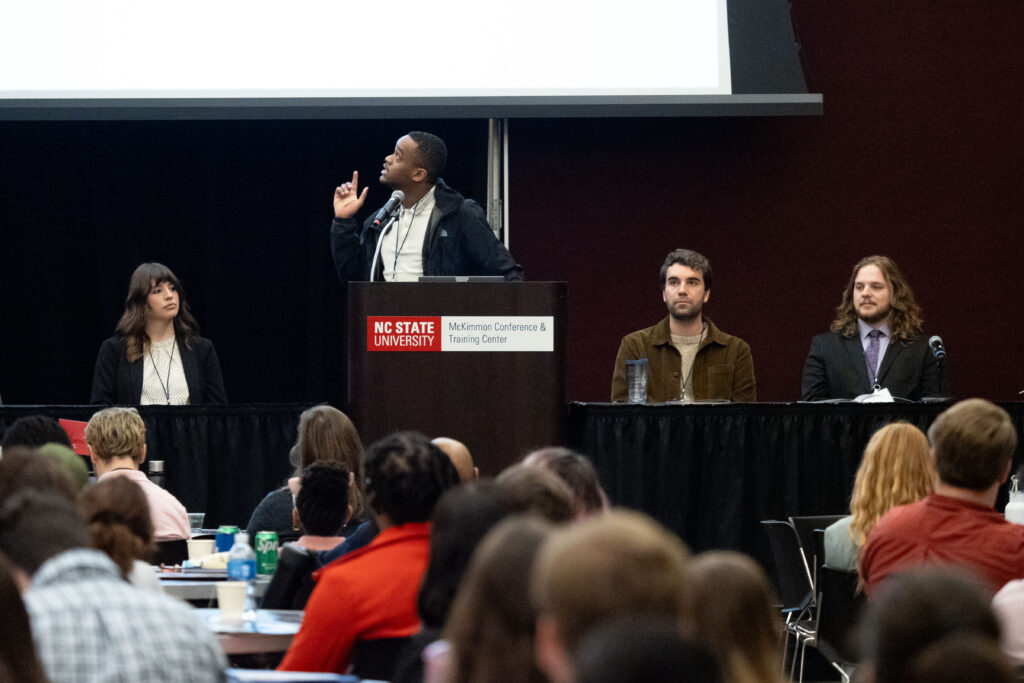
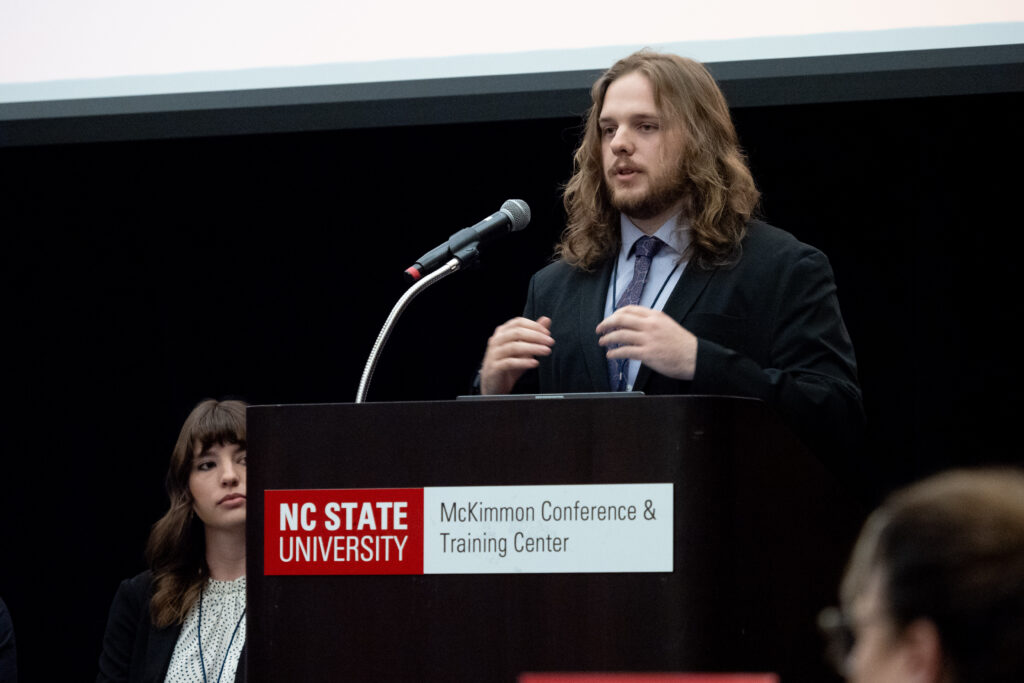
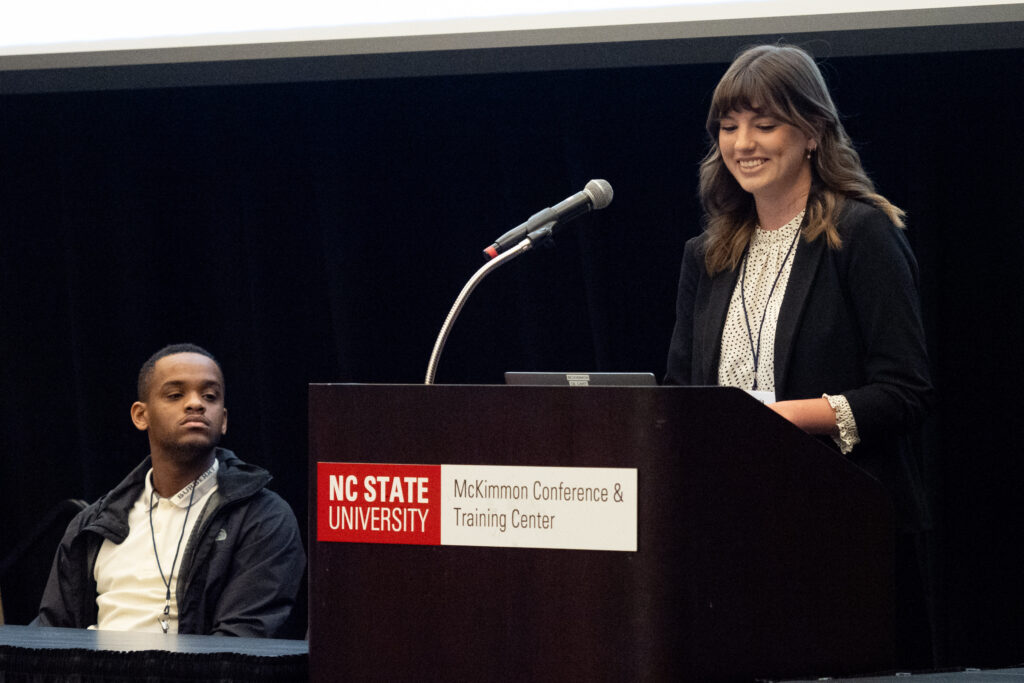
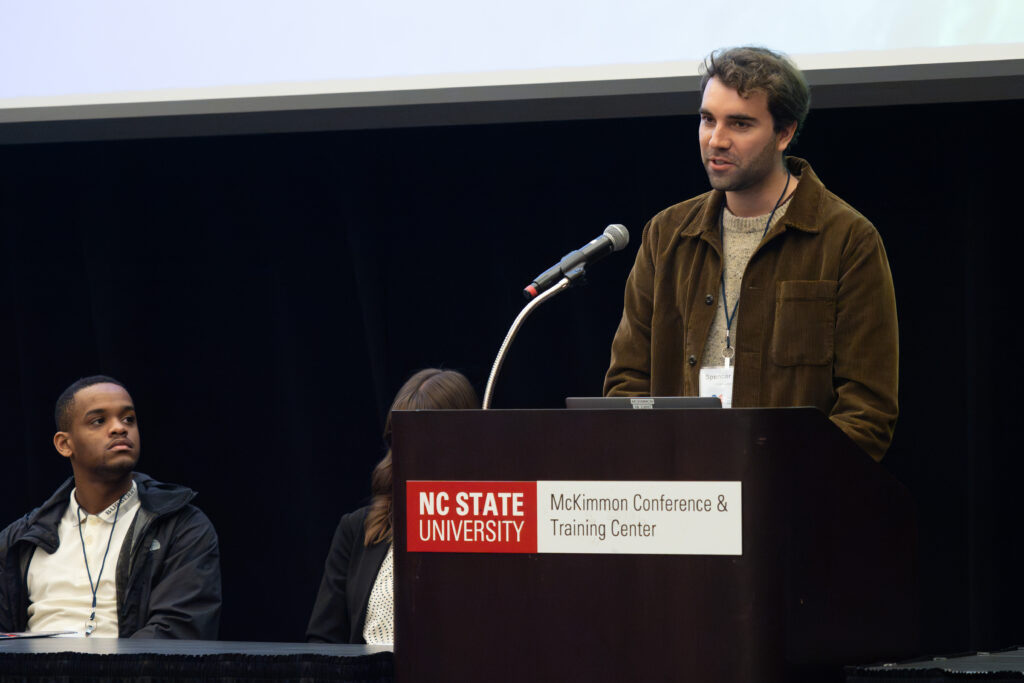
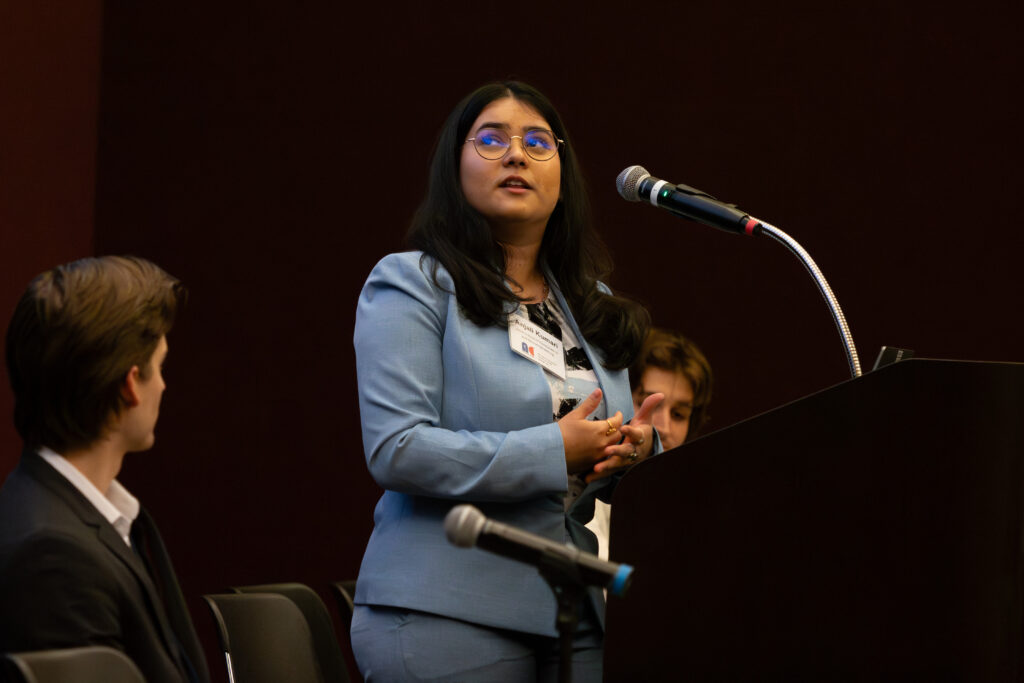
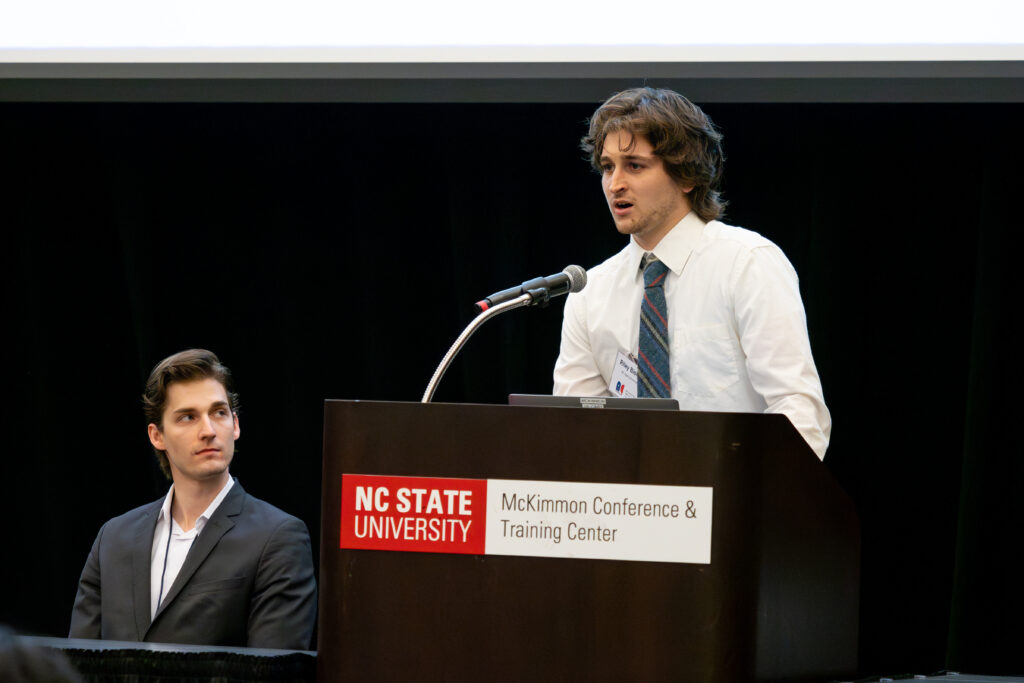
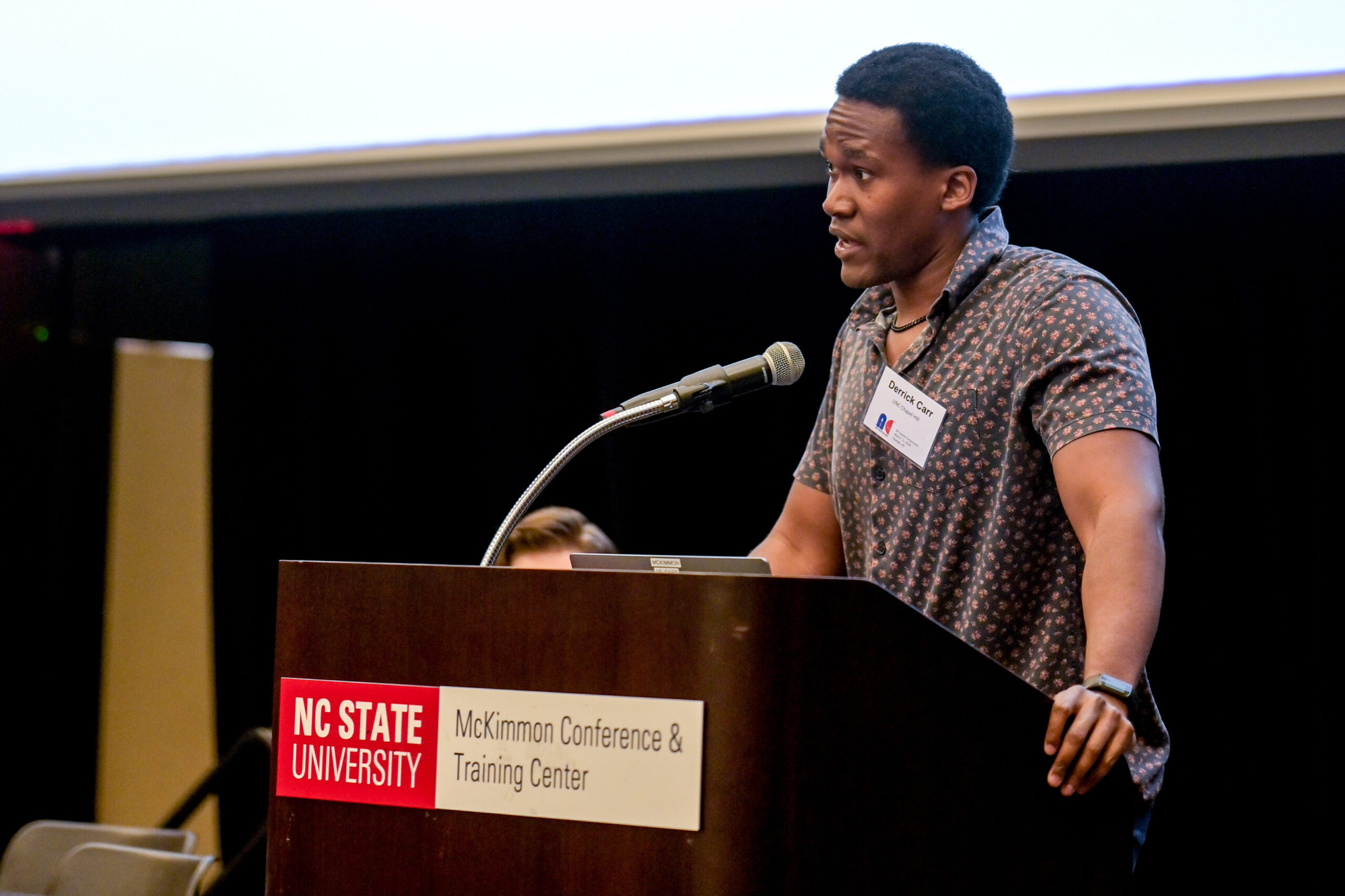
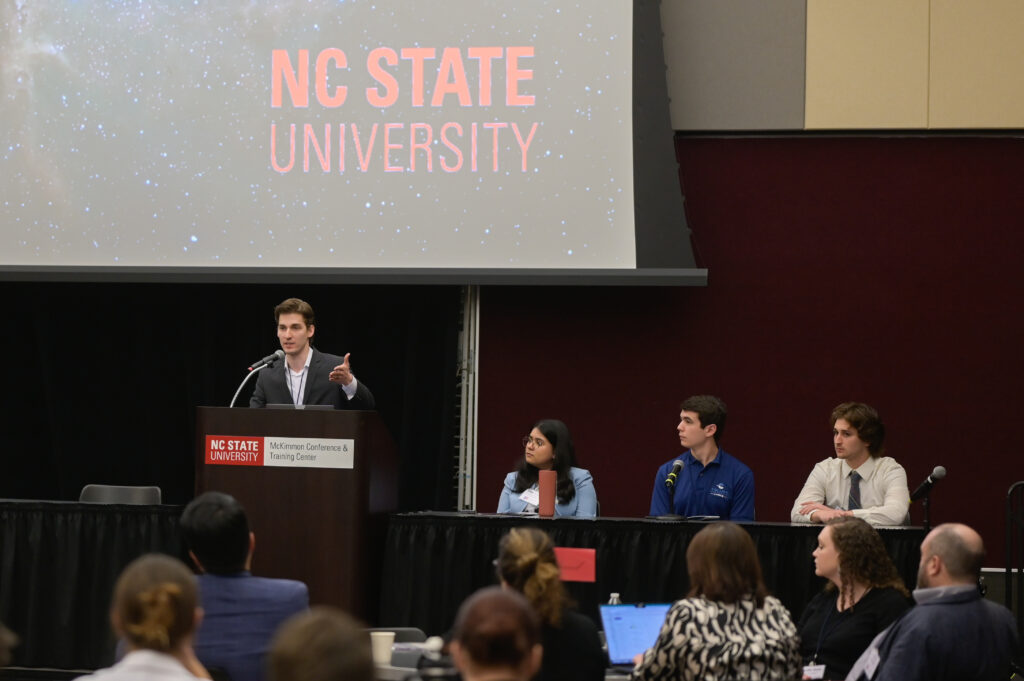
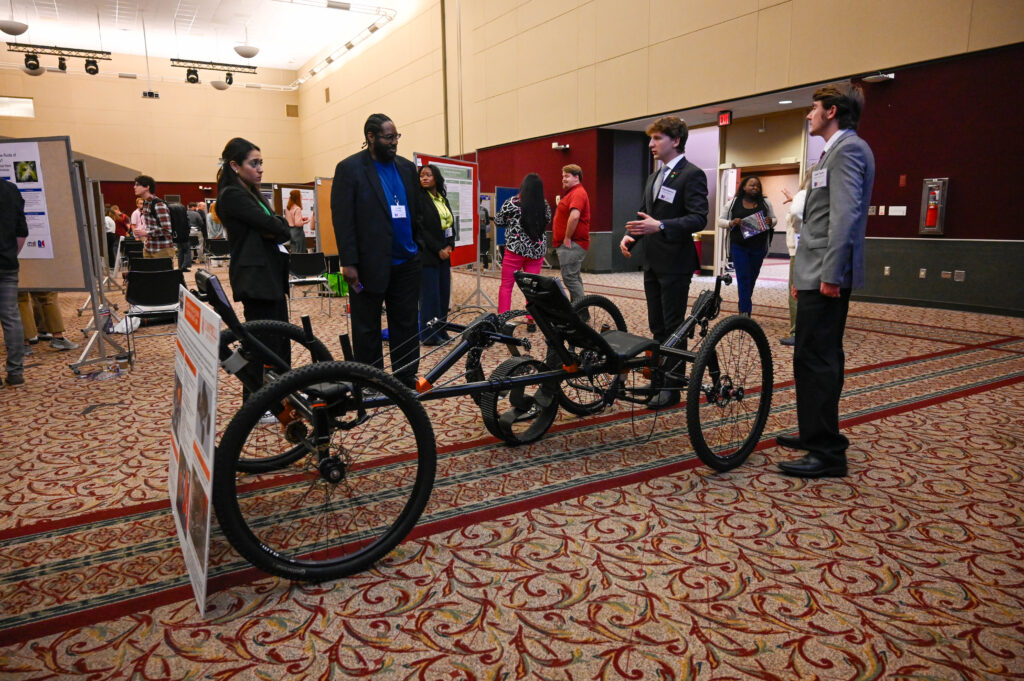
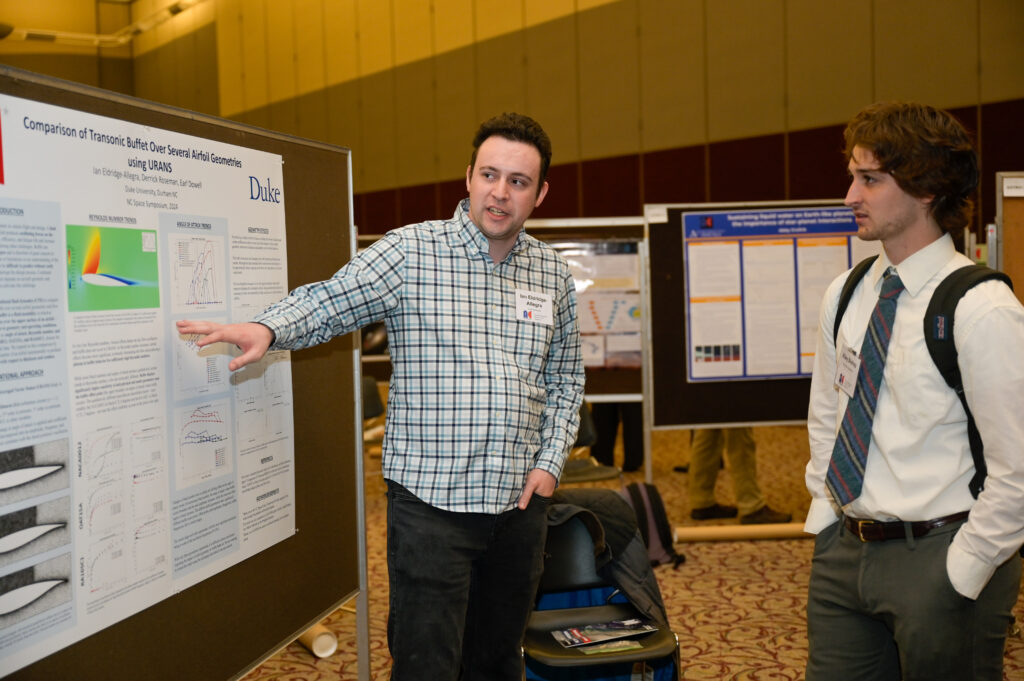
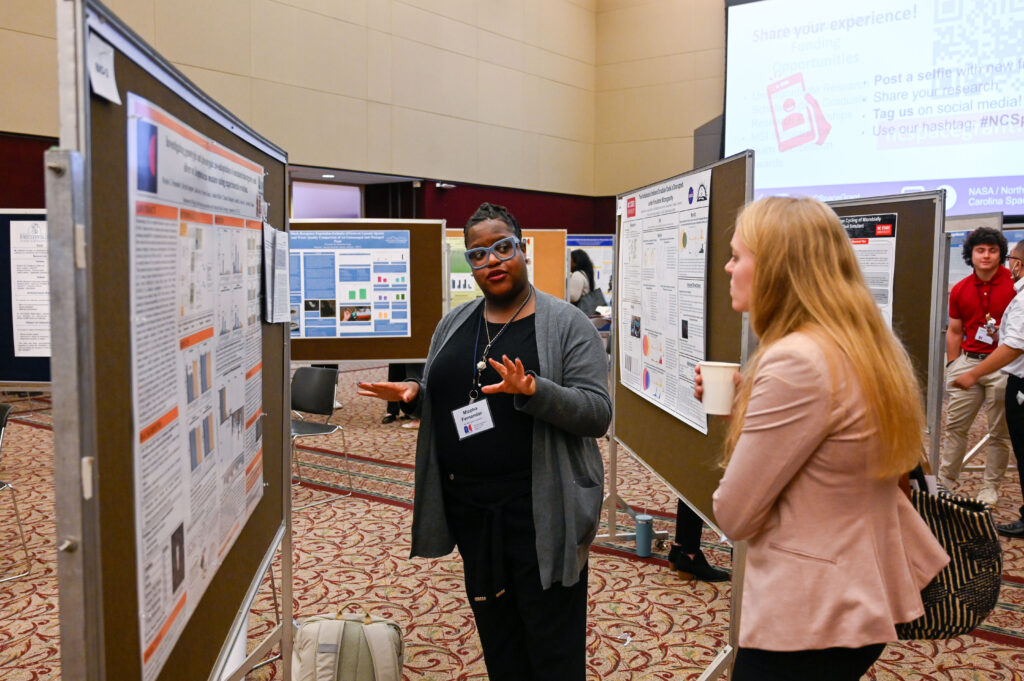
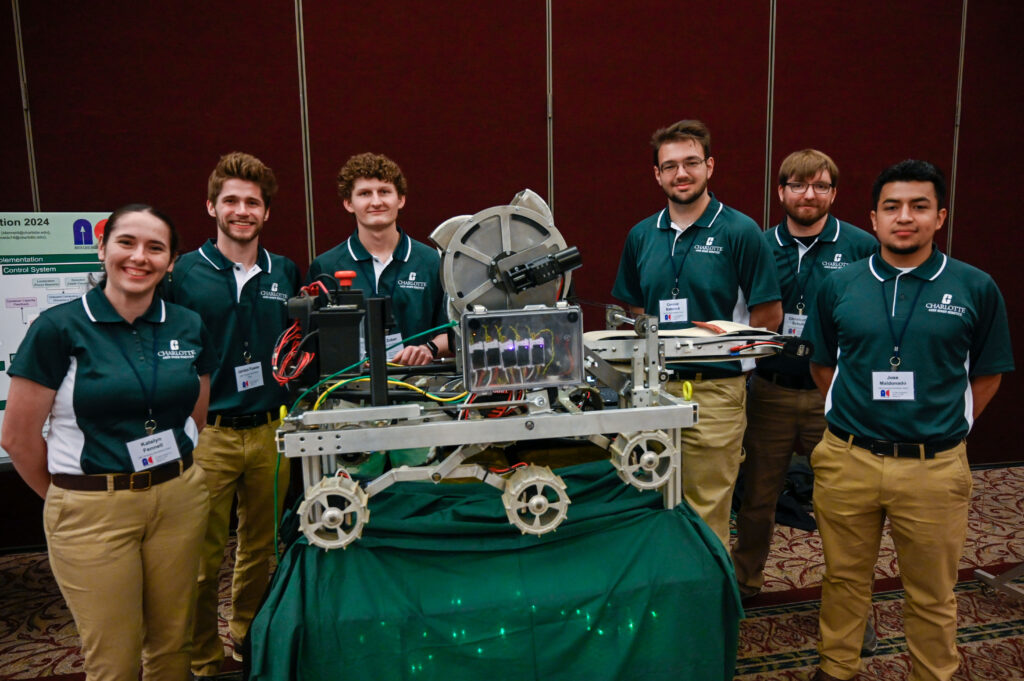
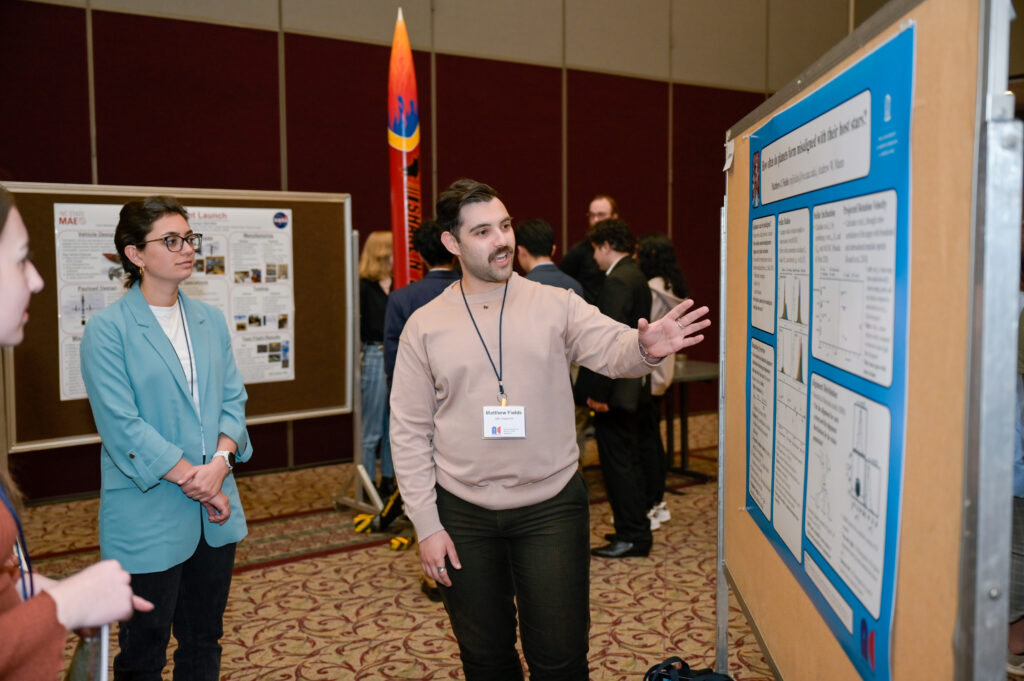
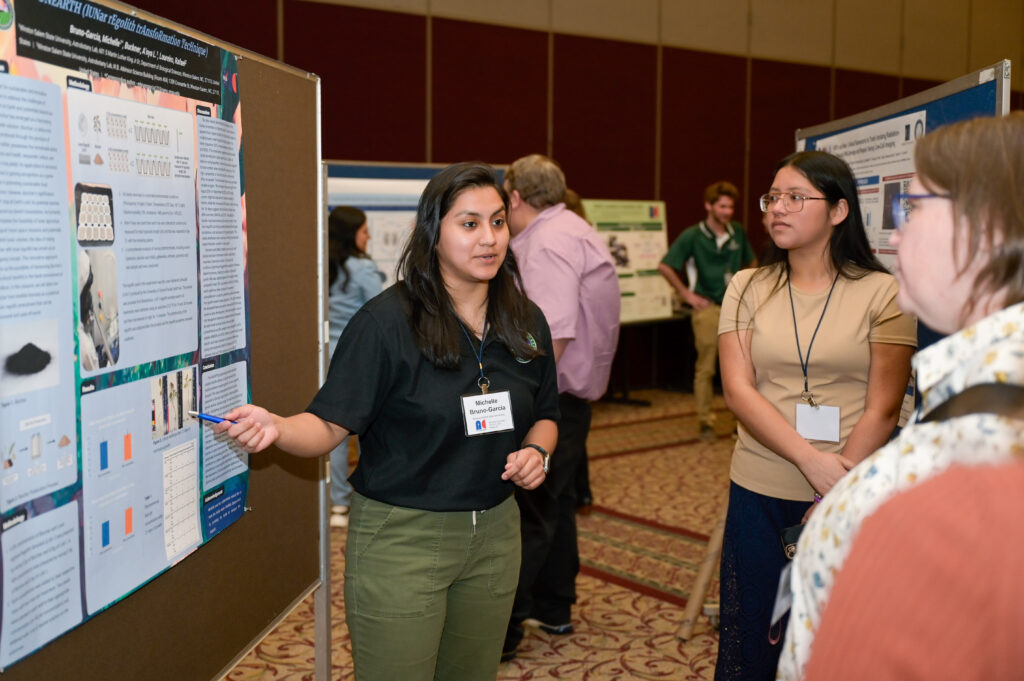
Highlighting NASA’s Investments in Earth Science
Attendees first heard from Erica Alston, program executive at NASA Earth Science Division. The NASA Earth Science Division is at the forefront of studying planet Earth’s complex systems, utilizing cutting-edge technology and satellite missions to monitor Earth’s atmosphere, land, and oceans. Through innovative research and collaboration, the division provides critical insights into climate change, natural disasters, and environmental sustainability, shaping the understanding Earth.
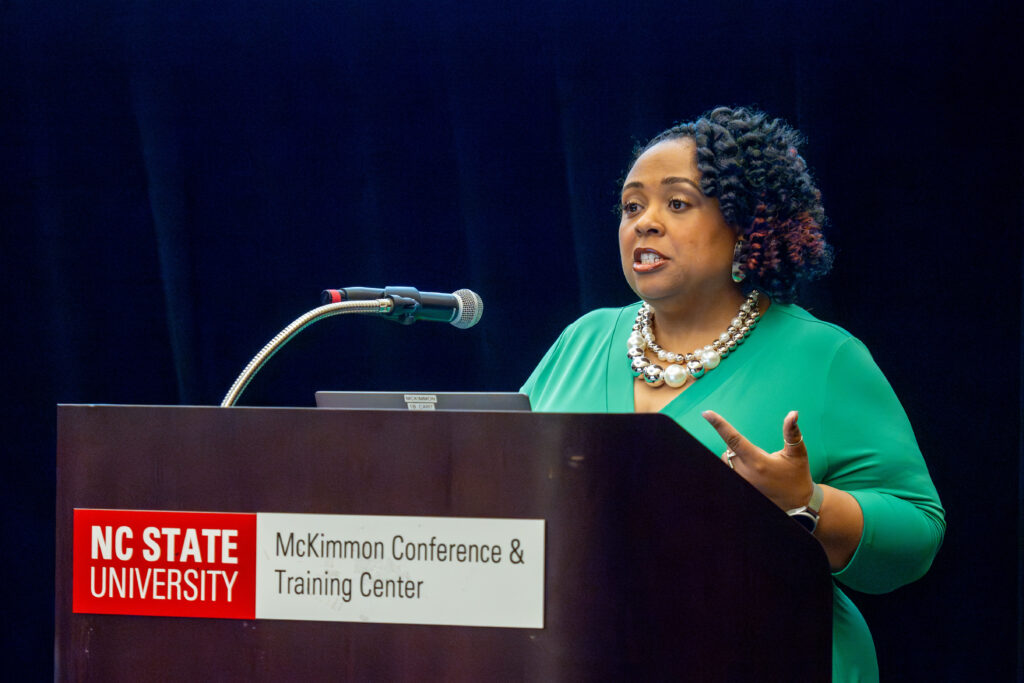
The panel, NASA research in NC, brought together Douglas Rao, research scientist at the North Carolina Institute for Climate Studies, Leila Hashemi-Beni, associate professor of remote sensing and GIS at NC Agricultural and Technical State University, and Tamlin Pavelsky, professor of global hydrology at the University of North Carolina at Chapel Hill, also highlighted climate change and flood mapping, as well as NASA’s Surface Water and Ocean Topography.
Rao’s talk illuminated the use of long-term satellite records and climate data for climate monitoring to better understand global temperature change over the past 40 years at local and regional scales. Hashemi-Beni’s insights on remote sensing underscored the role of cutting-edge remote sensing technologies and data science in flood mapping. Pavelsky showcased how NASA is using radar technology to measure the elevations of water surfaces in Earth’s rivers, lakes, oceans, and wetlands.
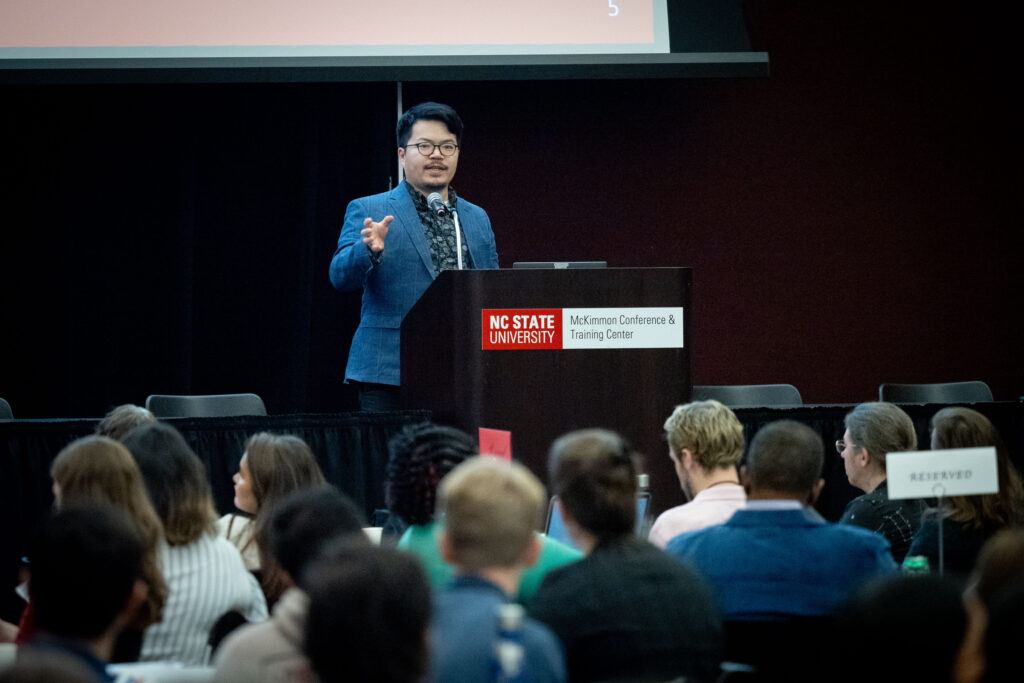
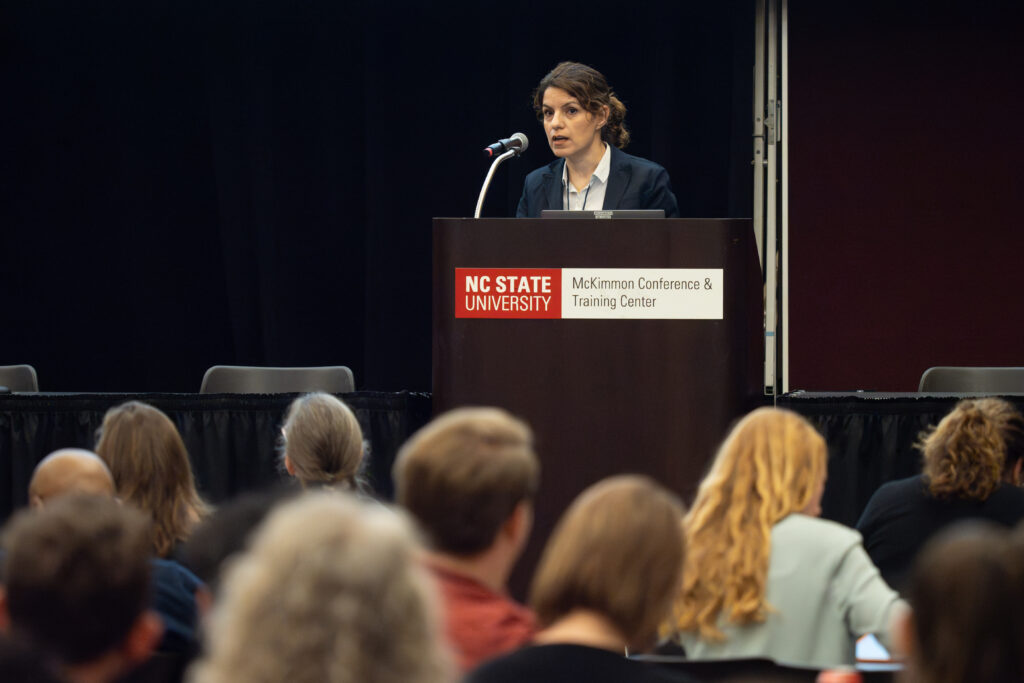
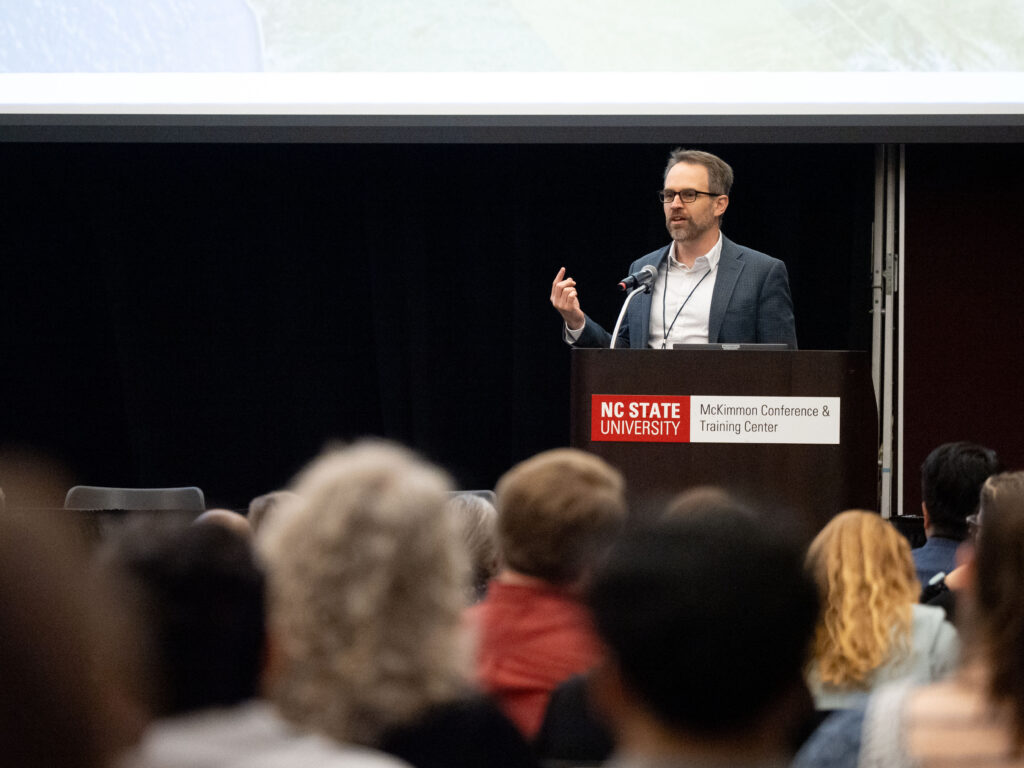
Learning Cutting-Edge Skills at Workshop
A special session led by Nathan Morrow, associate professor in international health and sustainable development at Tulane University, initiated a discussion about open science and its importance for fostering diversity, collaboration, community engagement, reproducibility, and equity in research.
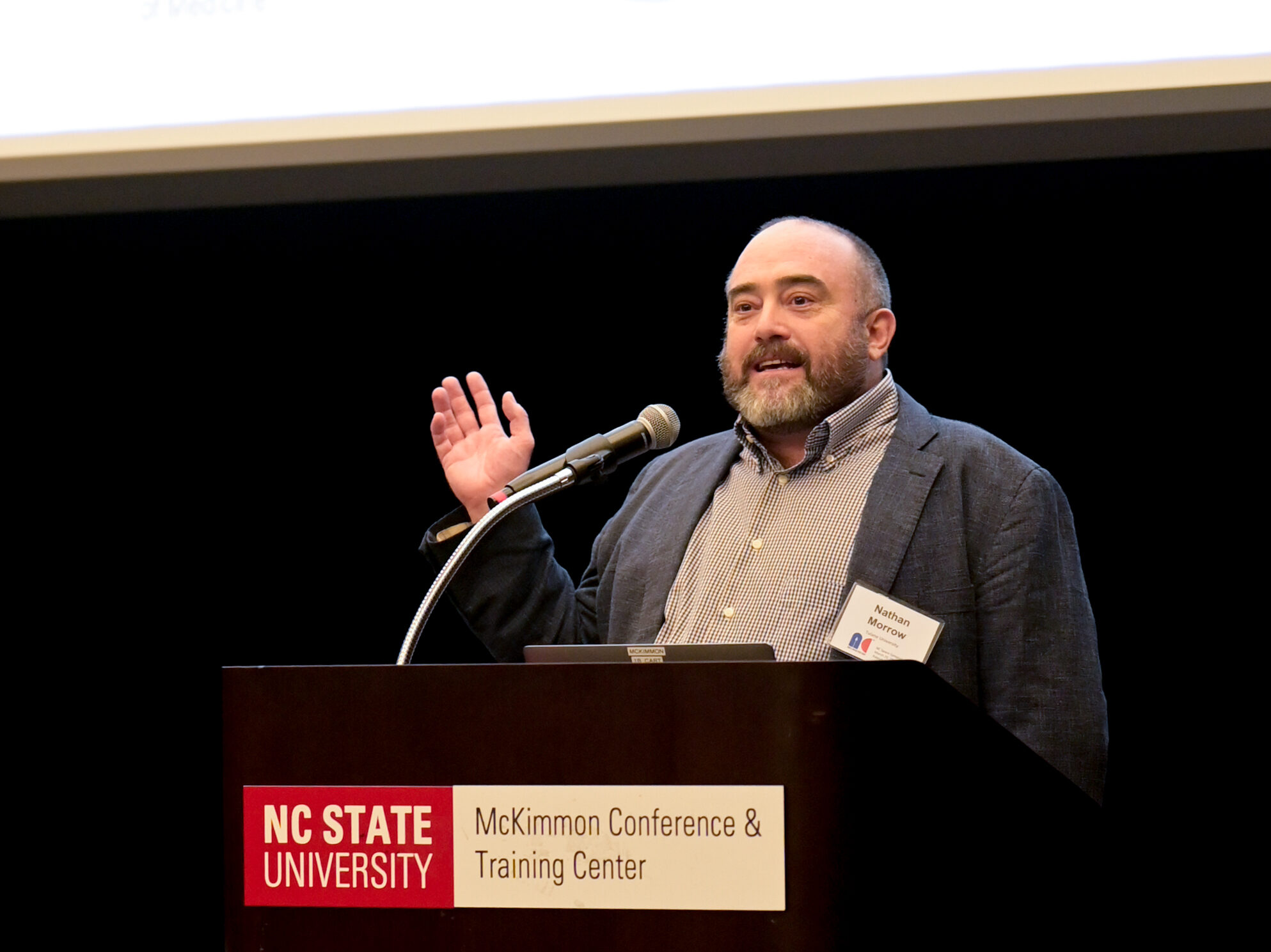
To promote learning and gaining cutting-edge skills, NC Space Grant hosted a NASA-led Open Science 101 Workshop led by Morrow, Cynthia Hall, support scientist at NASA Earth Science Division’s Early Career Research Program, and Elizabeth Joyner, community coordinator at NASA Earth Science Data Systems Communications Program, Science Systems and Applications, Inc.

After completing the workshop, participants are encouraged to complete an additional four modules designed to equip researchers, students and citizen scientists with the knowledge and skills to navigate the principles and practices of open science, including developing an open science and data management plan. Once complete, learners will receive NASA’s TOPS badge.
The workshop introduced students to the current landscape, benefits, and challenges of open science. NASA experts note it’s beneficial for students to learn open science as it can diversify methodology for better research, effectively showcase skills and research work, and more.
“Open science is the future, it’s where we’re headed, and it’s what we should be doing,” said Hall.
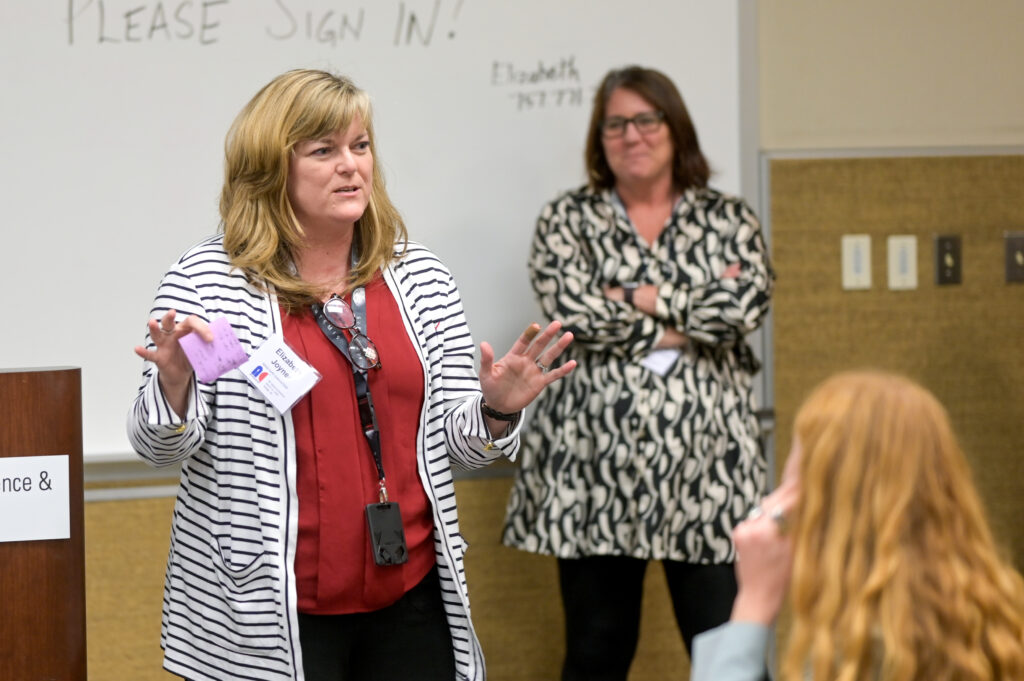
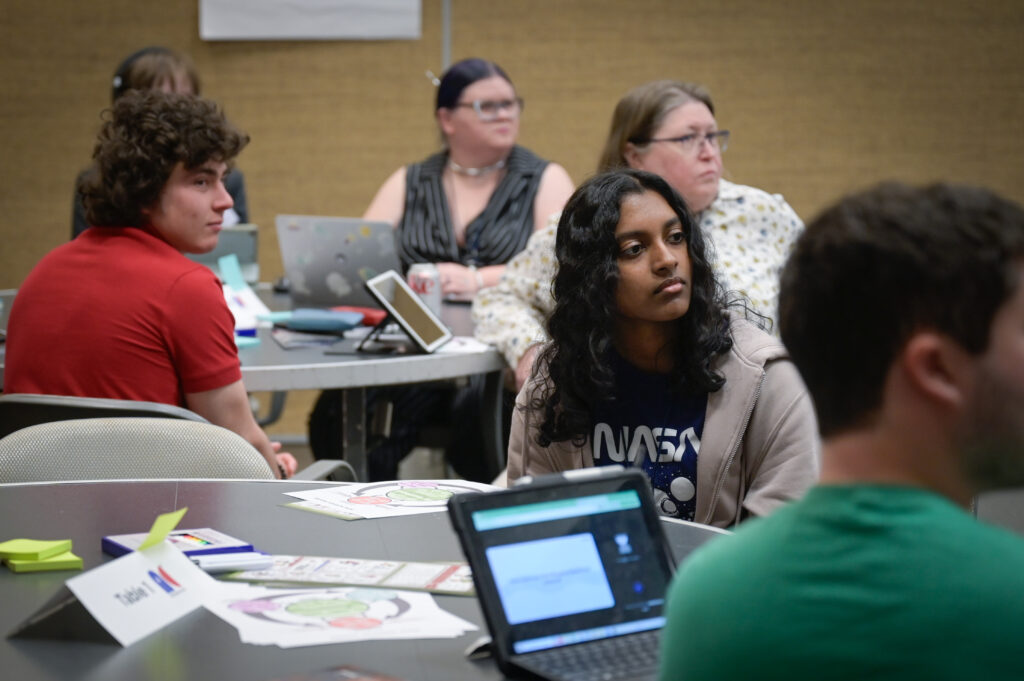
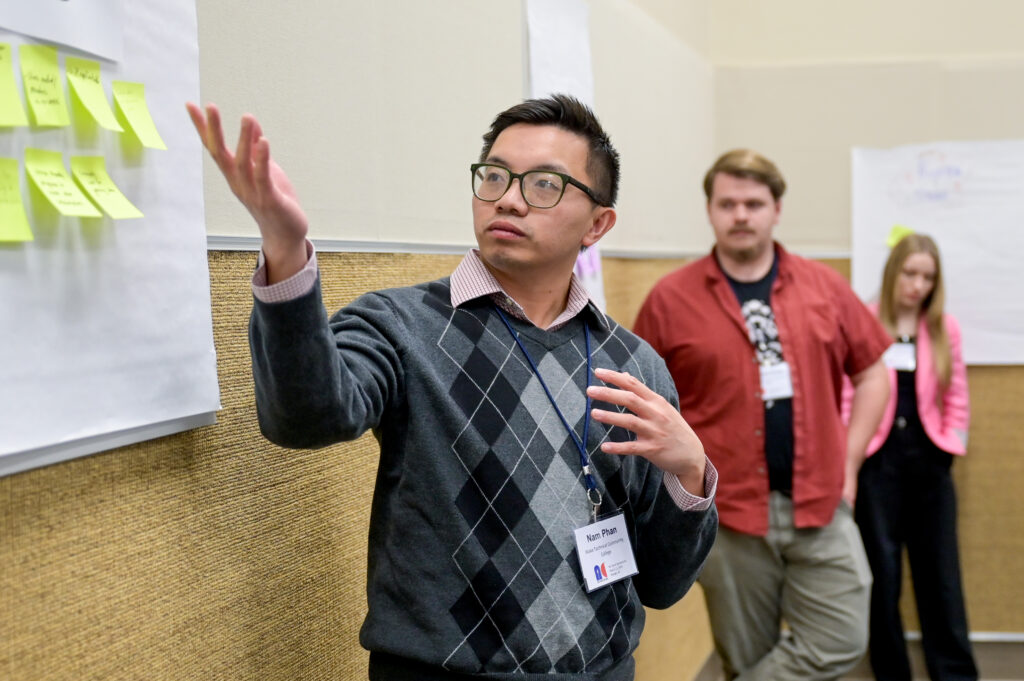
Exploring Venus to Understand Earth
The luncheon speaker, Paul Byrne, associate professor of earth, environmental, and planetary sciences at Washington University in St. Louis, captivated the attendees’ attention by delving into the cosmos sharing his research that explores Venus to better understand Earth. Byrne examines the current and past conditions of the Earth-sized planet, including its past habitability, and whether it ever hosted oceans.
Venus is nothing like Earth, though – it is intensely hot and highly pressurized. However, by understanding why the conditions are so different, scientists can get a better understanding of why Earth has remained habitable for more than three billion years, and how Venus’s conditions can be avoided on Earth, explained Byrne.
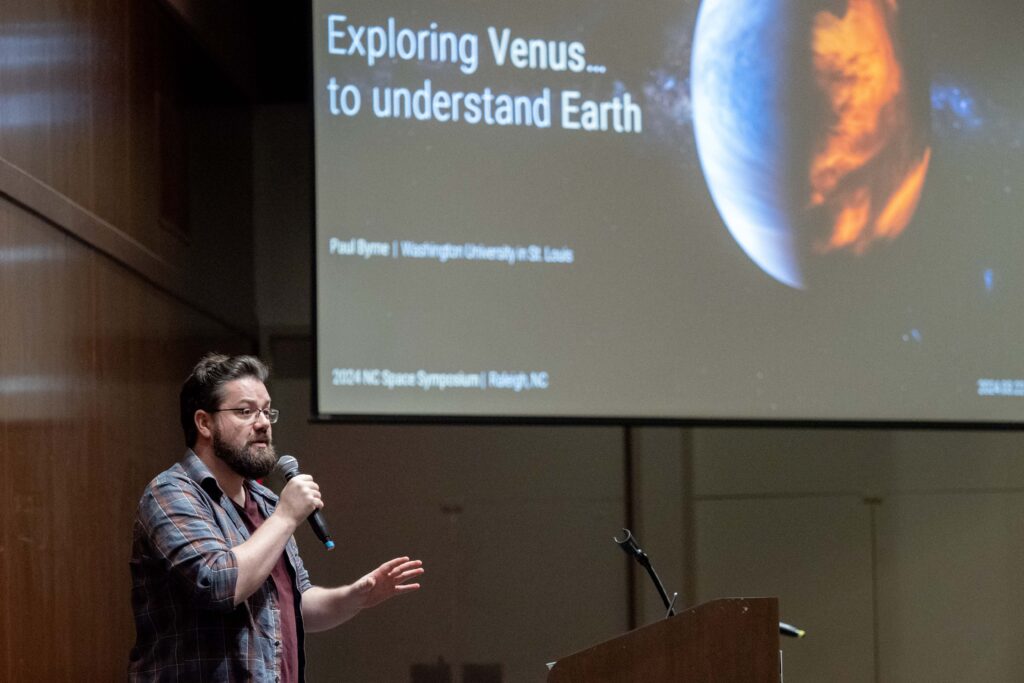
Looking Ahead
“The annual NC Space Symposium provides students with an opportunity to learn about current NASA missions and exciting space-related research from professionals in the field,” said Jobi Cook, associate director of NC Space Grant. “It’s an exciting time for space exploration, and we look forward to engaging our student community next year.”
The 2025 NC Space Symposium takes place April 11, 2025.
Thank you, sponsors!
Thank you to our Earth level sponsor, The University of North Carolina System, and Moon level sponsors, KBR, NC Water Resources Research Institute, and NC Sea Grant for helping make this event possible.

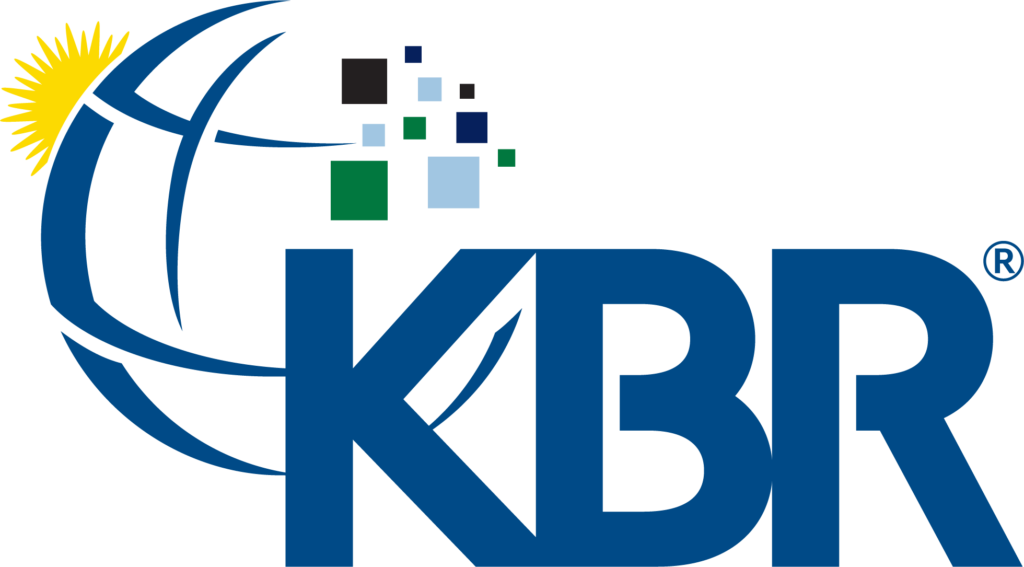
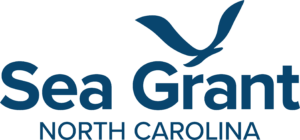
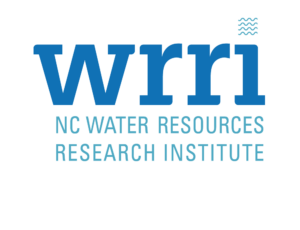
- Categories:
